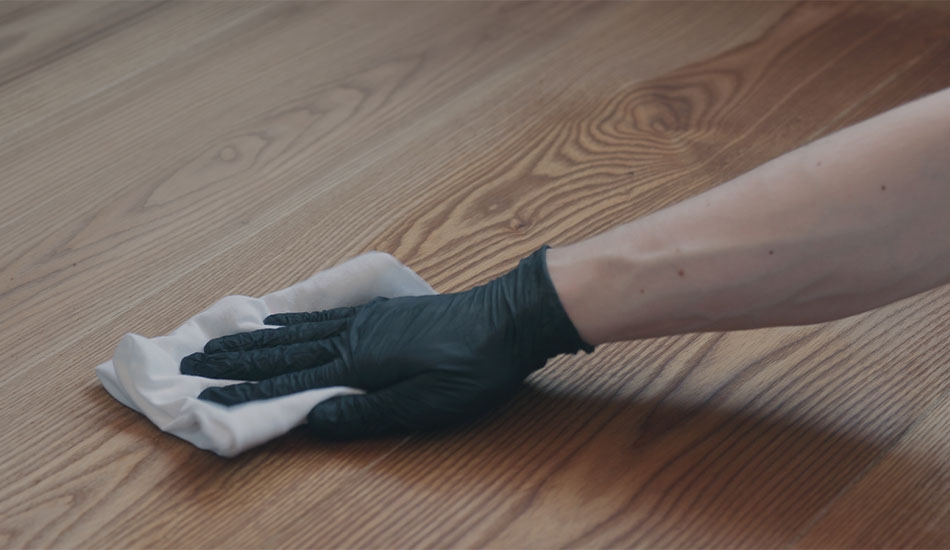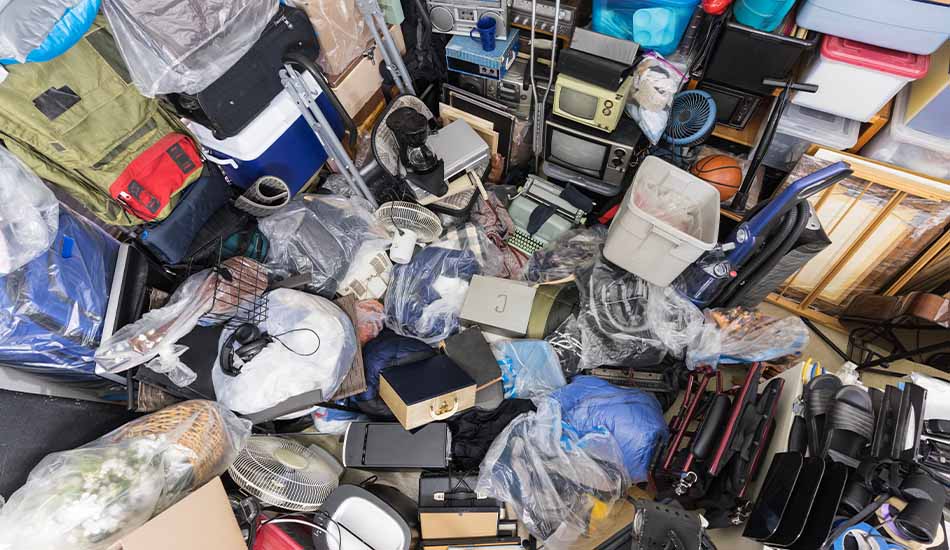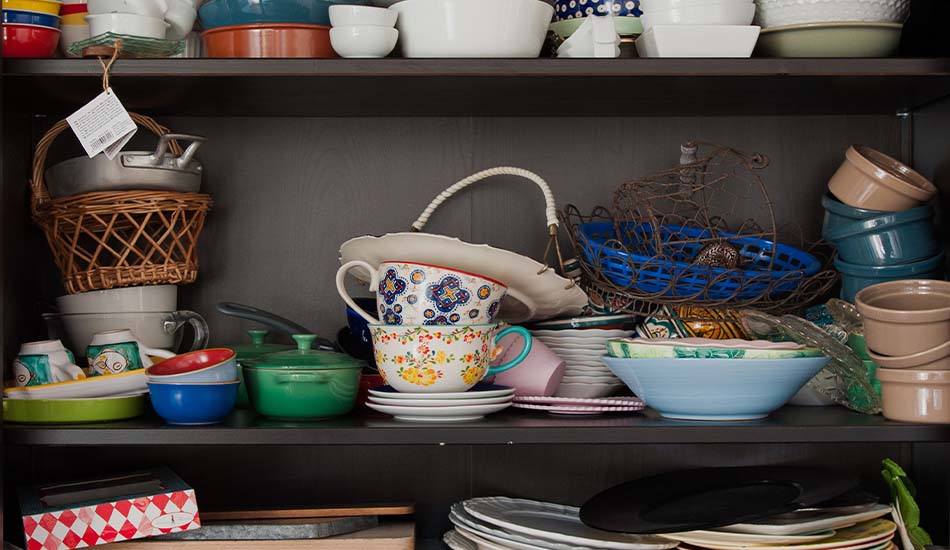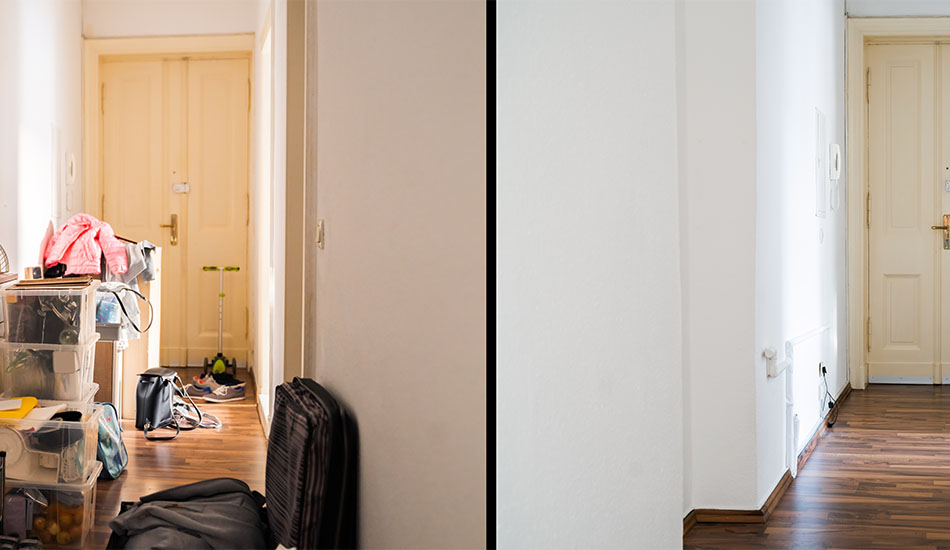

Hoarding can be a serious symptom of mental illness and deserves professional help from qualified therapists. We provide skip bins for rubbish removal. Why listen to us?
While we’re not mental health professionals, we know a thing or two about decluttering. We can’t speak to treating the illness, but we can help you declutter a hoarder’s home safely, sensitively and efficiently.
In this article, we’ll present 11 declutter tips that we’ve learned through the years.
That clutter has got to go somewhere. We’ll take it. Here at WM Waste, we provide everything from waist-height 2m skip bins to walk-in 23m bins—we guarantee we’ve got the right-sized rubbish removal skip bins for your needs.
As we said before, we’re in no position to help you diagnose a mental health problem. However, it is important that we get on the same page since decluttering will require a sensitive approach.
Hoarding is not the same as collecting or being untidy, extreme as the individual may be. People with a hoarding disorder will inflate the emotional significance of practically every item, no matter how common or low-quality. From china plates to plastic bags, their compulsive hoarding will force them to save everything. Because of their emotional attachment to every item in their accumulated clutter, they struggle to get rid of any of it.
A hoarding problem isn’t a moral failing or a knock against their character — it’s an illness. You’ll need to treat it as such to give your loved one the best care possible. We hope these tips help you provide just that.

This will sound counterintuitive, but cleaning and decluttering a hoarder’s home is not itself a favour. Even with the best intentions, we can do more harm than good if we generously and politely offer to clean their space while they relax or go on a spa day. Remember that what you see as junk is a treasure to them.
It’s critical that you let the hoarder take the reigns. Decluttering can only begin when they’re ready and be done at their pace. If you push them out or to go faster, they’ll get even more anxious, and that can worsen their hoarding symptoms.
While you need to work at their pace, you also can’t let them slack; finding the motivation to declutter can be an enormous challenge for a hoarder, so you must help them capitalise on it.
Work with them to create a reasonable but helpful timeframe.
The goal is structure, not speed, so give yourselves a cruisy schedule that breaks down the job into simple goals. For example:
Now that you have an overall timeframe, you can start planning each day. Every day is going to have hiccups and hurdles, so trying to schedule your work hour by hour may not be that realistic. Also, you both likely have other things to do — life doesn’t stop. Try these strategies instead.
Block out a small amount of time each day to declutter. For example, you and your hoarding loved one will only work for three hours after work on weekdays and for five hours on Saturdays.
Don’t be too ambitious with the goals you set for each day; one or two minor tasks are enough. Remember to go at their pace — some days they’ll have more energy than others.
Not everything needs to be trashed. In fact, throwing all of their clutter in a skip could be quite traumatising. Instead, create ‘piles’ that each item can go on:
A tip: these groups can help give these items a bit of a journey. It can help a hoarder to know that these items they cherish aren’t just going to a landfill, but might actually be treasured in some way.
The longest journey begins with a single step. You need to know where you’re going to start.
We recommend beginning your decluttering process by focusing on the essential spaces, such as the master bedroom, bathroom, and kitchen. Alternatively, you can begin with the easiest spaces, like closets and cupboards.
As always, see what works for them.
Cluttered homes can contain all kinds of health risks: tripping hazards, dust, mould and mildew, sharp objects, rotting food, and even dead vermin — it all depends on how long your loved one has been hoarding.
You all need to take care to protect yourselves. Head down to Bunnings and pick up some basic PPE, such as goggles, gloves, and masks. Remember to wear sturdy, closed shoes.
Remember not to make a hoarder feel like they’re being judged. They’re likely to feel quite vulnerable as seeking help, even from beloved friends and family members, can be difficult.
Cleaning can be physically taxing work, and it will certainly be an emotionally fraught time for a hoarder, so it’s important to try to create an enjoyable experience to the best of your ability.
Keep a Bluetooth speaker going with your favourite tunes. It doesn’t have to be dance hits all day long — enjoy something soothing.
Always try to bring positive energy to the job. The calmer you are, the calmer they’ll be.
This is critical: don’t make a show of negative reactions to the clutter. It’s natural to feel disgusted. You may not be dry-heaving, but even small comments and gross expressions can feel like a judgment.

Well, of course we’d say that. But this isn’t business — it’s personal.
Helping a hoarder declutter their house isn’t a small task, and your council bins aren’t going to do the job. A rubbish skip gives you the space you need. More importantly, it lets you get clutter out of the house and out of sight immediately.
A skip also allows you to set a rule — what goes in the skip, stays in the skip.
This is a long-haul process. It takes time, and tensions will run high occasionally.
Your loved one may decide to call the whole thing off, or blow up at you for throwing away something they weren’t ready to get rid of. You may get upset at how long decluttering is taking, especially since you’re doing this as a favour, or you may not be able to wrap your head around why they care about some seemingly insignificant object.
Getting frustrated is fair, but you must keep a cool enough head not to escalate. Don’t threaten to leave them, kick them out and do it yourself, or call the landlord or the council.
You do need your own boundaries — know when to step away. But threats can make them feel cornered, which will only exacerbate their hoarding and whatever deeper issue is causing it.
You want to encourage positive habits. To do that, you ought to celebrate every step forward, no matter how small the step or the celebration.
Decluttering a house is as taxing for the hoarder as it is for the friend or family member helping them. You’ll all need support.
For you, we recommend checking out in-person or online support groups for loved ones of hoarders. You’ll find resources and an ear or two to listen to your struggles. And if the cleaning goes beyond your abilities, you may need professional assistance. There are cleaners that specialise in this field — they may even be able to help you convince your hoarding loved one to let them help.
As for your hoarder, you must try to — sensitively — encourage them to seek treatment from a mental health professional. Hoarding behaviour always has a root cause. You might find that the better the decluttering goes, the more amenable they become to seeking therapy.

We hope that you’ve found these tips practical and useful. We hope that you, your family, and your loved ones get the help that you need and find yourself on a healthier, happier path soon.
But we’re a skip bin hire company, so let us do what we do best. You’ll definitely need one while you declutter your hoarder’s house.
We deliver rubbish removal skips across Melbourne and the Morning Peninsula. Get in touch, and we can help you decide what size bin you need. We’re happy to let you keep it for an extended period of time. We’ll even give you guidance on council permits if you need to keep your skip on your nature strip rather than your driveway. Just let us know how we can help.
© 2026 WM Waste Management Services | All Rights Reserved